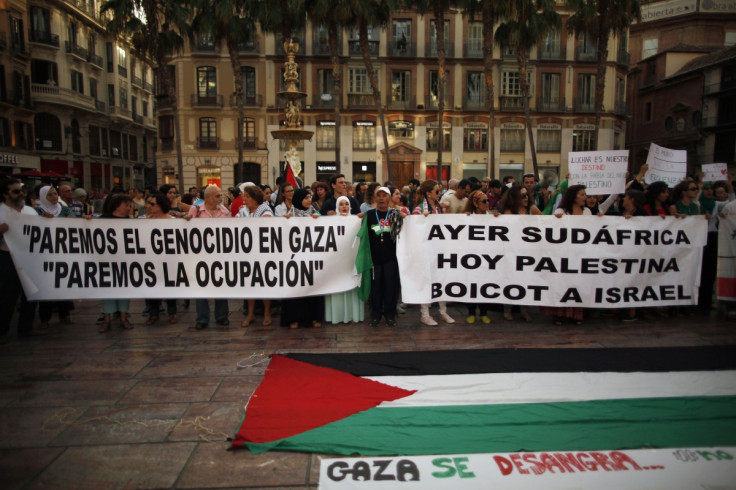Inside Israel: Tourism Minister Uzi Landau Links BDS Campaigners With Isis Supporters

A senior Israeli politician has criticised the BDS movement in Europe, saying many of its members support extremist groups like Isis and Boko Haram.
Israel's tourism minister Uzi Landau told IBTimes UK that the BDS Movement (Boycott, Divestment and Sanctions) concerned him because it questioned Israel's right to exist, but added that it was not a threat to the economy.
Launched in 2005 by trade unions and other non-governmental organisations in Palestinian society, BDS calls for an end to the occupation of Palestinian territories, which Israel has held since 1967.
It also calls on Israel to begin "recognising the fundamental rights of the Arab-Palestinian citizens of Israel to full equality" and for the right of Palestinian refugees forcibly displaced during the 1948 war to return to the homes and lands that they left.
The non-violent movement has gathered momentum across Europe and North America in recent years, with public demonstrations taking place during the war between Israel and Hamas in July and August.
"You have been seeing those BDS demonstrators going to demonstrate in Europe in many capitals. But you see that many of the BDS people, some of whom are well-intentioned people who are misinformed, many if they are given the chance, will also go for demonstrations in favour of those who are now doing horrible things," he said, referring to extremist groups Isis in Syria and Boko Haram in Nigeria.
"Many of those who are in Syria for example and are now with Isis, are European-born people, who will go back to their countries of origin. The European security services are becoming very worried as to what might happen in Europe."
Israel's economy has slowed in the past few months, following a period of global trend-busting growth. Gross domestic product was revised down from 2.9% to 2% for 2014, in the latest assessment from the Central Bureau of Statistics.
The downward revision included the economic impact of Israel's offensive into Gaza this summer. The 50-day war led to the deaths of more than 2,100 Palestinians, the majority being civilians according to the UN and Palestinian officials. On the others side, 66 Israeli soldiers were killed as well as seven civilians.
The war decimated Israel's tourism industry, which recorded a 25-30% downturn during the months of July and August. However, the latest figures also showed a slowdown in Israel's exports and manufacturing sector. When asked whether the BDS campaign was behind this slowdown, Landau shrugged off the suggestion.
"Well BDS doesn't help, but I'm more concerned about BDS, not from the economic point of view, but rather from the general debate which they're raising a question mark about the legitimacy of Israel's existence," he told IBTimes UK.
"Economically, we have in the past had things which were hurting much more, such as the Arab boycott, the official Arab boycott. Despite all of that, we have done very well over our history."
"So as much as BDS does not help, I don't think economically this is going to significantly hurt us," he added.
© Copyright IBTimes 2024. All rights reserved.






